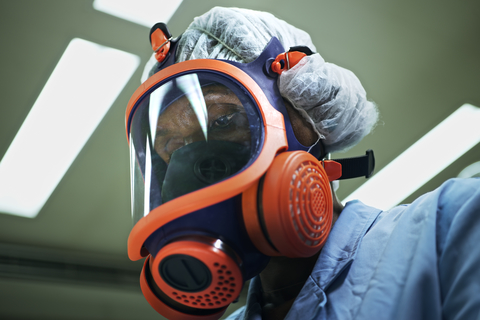£7.3m award brings advanced medical therapies to Wales

A recently formed health consortium, jointly led by the Welsh Blood Service (on behalf of NHS Wales) and the National Institute for Health Research Birmingham Biomedical Research Centre, has been awarded £7.3m of UK Government funding to ensure more people benefit from a new generation of breakthrough therapies.
Abertawe Bro Morgannwg University Health Board reports £1.5m will come directly to NHS Wales and £550,000 to Trakcel, a Cardiff-based software company developing scheduling/tracking software for advanced therapies, based upon technology developed at Swansea University.
The funding will support the Welsh Government’s commitment to developing an Advanced Therapies Strategy which will enable these therapies to be brought to Welsh patients and advanced therapy medicinal product (ATMP) companies to reach the clinical market, whilst building expertise, capability and capacity across NHS Wales to benefit patient outcomes.
Frank Atherton, Chief Medical Officer for Wales, said “We welcome the announcement of the successful partnership between Birmingham, Nottingham and Wales NHS centres in bidding for Innovate UK monies. The project is aligned with our ambition to support the development, availability and adoption of new innovative therapies for patients in Wales. Cell- and gene-based advanced therapies offer exciting opportunities, not only for the way we treat people with previously incurable conditions, but also how we work together with industry and NHS Wales in bringing these treatments from bench to bedside.”
The Midlands & Wales Advanced Therapy Treatment Centre (MW-ATTC) will identify barriers, challenges and solutions to facilitate future deployment and adoption of these transformative therapies within the UK healthcare system.
Advanced treatments, such as cell and gene therapies, show great promise for people with chronic and terminal conditions that currently cannot be cured. Unlike conventional medicines, these new approaches often aim to selectively remove, repair, replace, regenerate and re-engineer someone’s own genes, cells and tissues to restore normal function. The project will include potential treatments for arthritis, liver disease, several types of cancer, and diabetic ulcers.
The NHS Wales role in the MW-ATTC consortium was led by the Welsh Blood Service, with support from Abertawe Bro Morgannwg and Cardiff & Vale University Health Boards along with the Life Sciences Hub Wales Special Interest Group on Cell and Gene Therapy, which brings together expertise from the Welsh NHS, universities and industry in the life science sector.
Cath O’Brien, Director of the Welsh Blood Service and MW-ATTC Co-Director, said “A significant opportunity exists to position Wales as a leader in clinical trial and routine delivery of cell and gene therapies to maximise Welsh patient benefit and opportunities for the national economy. The Welsh Government is committed to exploring these revolutionary developments in healthcare and we are excited to have worked alongside our consortium partners to secure funding through what was a highly competitive tendering process.”
As part of the contract award, the first advanced therapy treatment sites in Wales will be established within Abertawe Bro Morgannwg and Cardiff & Vale University Health Boards. The focus of the centres will be to develop the infrastructure, processes and skilled workforce required to enable people to be cared for from diagnosis through to post-treatment follow up.
One of the first products that will pass through the Welsh centres is that being developed by one of the consortium partners, Rexgenero and is intended to prevent the need for diabetes-related lower limb amputations for some no option patients. The incidence of diabetes is continuing to increase in Wales and already accounts for about 10% of the NHS Wales budget (£500m). There are two hundred thousand people with the condition today, which is expected to rise to an estimated five hundred thousand by 2025. Currently around two thousand people in Wales have non-healing lower limb ulcers that result in approximately three hundred and thirty amputations each year.
The twelve partners in the MW-ATTC consortium all have specific expertise in different aspects of the overall production and delivery of advanced therapies. They are NHS Wales, the National Institute for Health Research Birmingham Biomedical Research Centre, Nottingham University Hospitals NHS Trust, Asymptote, Thermo Electron (as Fisher BioServices), Trakcel, Cellular Therapeutics, Rexgenero, NHS Blood And Transplant, World Courier Logistics (UK), Cell Medica, Miltenyi Biotec and Orbsen Therapeutics.
The Midland-Wales consortium grant is part of £30m UK Government funding over three years, managed by Innovate UK, for the creation of three Advanced Therapies Treatment Centres. The other selected centres are the Innovate Manchester Advanced Therapy Centre Hub (iMATCH) and the Northern Alliance Advanced Therapies Treatment Centre (NAATTC), which comprises Scotland, Newcastle and Leeds.








